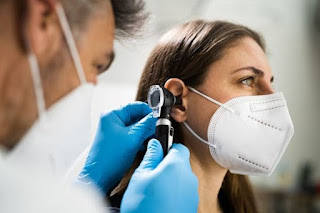Convenience and Reliability: Rechargeable Hearing Aids and Hearing Aid Repair Solutions!
Rechargeable Hearing Aids:
Rechargeable hearing aids have become increasingly popular in recent years due to their convenience and ease of use. These devices are designed with built-in rechargeable batteries, which eliminate the need for constant battery replacements. This not only saves money, but it also reduces the environmental impact of disposable batteries.
Most rechargeable hearing aids use lithium-ion batteries, which provide long-lasting power and can be recharged quickly. They also typically come with a charging dock, which allows users to simply place their hearing aids in the dock overnight for a full charge. Some models even have a quick-charge feature that can provide several hours of use after just a few minutes of charging.
In addition to their convenience, rechargeable hearing aids also tend to be more reliable than traditional hearing aids. Since they use a single battery, there is less risk of the device malfunctioning due to a dead or weak battery. They also tend to have fewer battery-related issues, such as corrosion or leakage.
Hearing Aid Repairs:
While hearing aids are designed to be durable and long-lasting, they may occasionally require repairs due to wear and tear or damage. Common issues that may require hearing aid repairs include malfunctioning volume controls, broken microphone or speaker, cracked casing, or water damage.
It's important to have hearing aid repairs performed by a qualified professional to ensure that the device is properly fixed and functions correctly. Many hearing aid manufacturers offer repair services, and there are also third-party companies that specialize in hearing aid repairs.
Before sending your hearing aid in for repair, it's important to check if the device is still under warranty. If it is, the repair may be covered by the manufacturer. If the device is not under warranty, repair costs will depend on the extent of the damage and the type of repair needed.
In some cases, it may be more cost-effective to replace a damaged or outdated hearing aid rather than repair it. Your hearing care professional can help you determine the best course of action based on your specific needs and budget.
.png)
.png)
.png)
.jpg)

Comments
Post a Comment